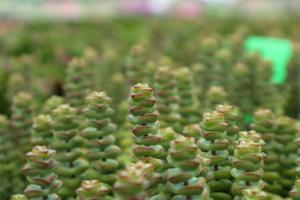Is Rubber Tree Plant Poisonous to Cats?
The Rubber Tree Plant (Ficus elastica) is a popular houseplant known for its unique foliage and ease of care. However, pet owners are often apprehensive about keeping this plant indoors, fearing the potential risks of toxicity to their pets, specifically cats. In this article, we will explore whether the Rubber Tree Plant is indeed poisonous to cats, and what pet owners can do to keep their pets safe while enjoying their indoor greenery.
Understanding the Toxicity of Rubber Tree Plant
Rubber Tree Plant belongs to the genus Ficus, which contains over 800 species of trees, shrubs, and vines. While some Ficus species are completely non-toxic to cats, others contain toxic compounds that can cause mild to severe symptoms. The Rubber Tree Plant contains a toxic, milky sap called ficin, which is found in the leaves, stems, and roots of the plant. This sap contains several harmful compounds, including proteolytic enzymes and furocoumarins, which can cause digestive upset, skin irritation, and allergic reactions in cats.
Signs of Rubber Tree Plant Toxicity in Cats
Cats that ingest any part of the Rubber Tree Plant may experience a range of symptoms, depending on the amount ingested and the cat's sensitivity to the plant's toxins. Some common signs of Rubber Tree Plant toxicity in cats include vomiting, diarrhea, loss of appetite, lethargy, abdominal pain, and excessive drooling. In severe cases, cats may develop more serious symptoms, such as respiratory distress, seizures, and renal failure. It is important to note that symptoms may not appear immediately after ingestion but can develop over several hours or days.
Preventing Rubber Tree Plant Poisoning in Cats
The best way to prevent Rubber Tree Plant poisoning in cats is to keep the plant out of reach of cats. This means placing the plant on a high shelf or in a room that is off-limits to the cat. If the cat has access to the plant, pet owners should closely monitor their pet's behavior and look for signs of ingestion. If the cat has eaten any part of the Rubber Tree Plant, it's important to contact a veterinarian immediately. In addition, pet owners can consider using deterrents, such as bitter-tasting sprays or double-sided tape, to discourage cats from approaching the plant.
Safe Alternatives to Rubber Tree Plant
While the Rubber Tree Plant may be toxic to cats, there are plenty of non-toxic alternatives that pet owners can choose from. Some popular non-toxic houseplants include spider plants, Boston ferns, Parlor palms, and Areca palms. These plants not only add a touch of greenery to the home but can also help purify the air and improve overall indoor air quality.
Conclusion
The Rubber Tree Plant can be a beautiful addition to any home, but its toxicity to cats should not be ignored. Pet owners must take precautions to ensure their cats are safe and protected from the plant's harmful toxins. By understanding the signs of toxicity and taking preventative measures, pet owners can still enjoy the benefits of indoor plants without putting their pets at risk.

 how many times do yo...
how many times do yo... how many planted tre...
how many planted tre... how many pine trees ...
how many pine trees ... how many pecan trees...
how many pecan trees... how many plants comp...
how many plants comp... how many plants can ...
how many plants can ... how many plants and ...
how many plants and ... how many pepper plan...
how many pepper plan...































